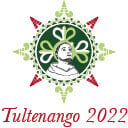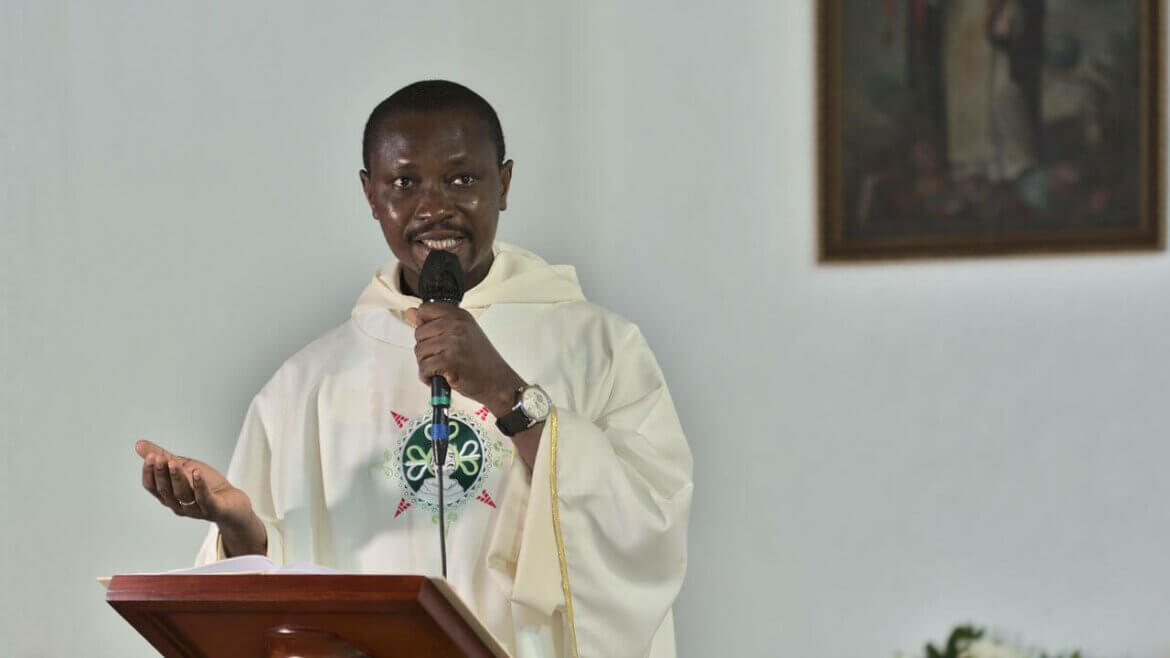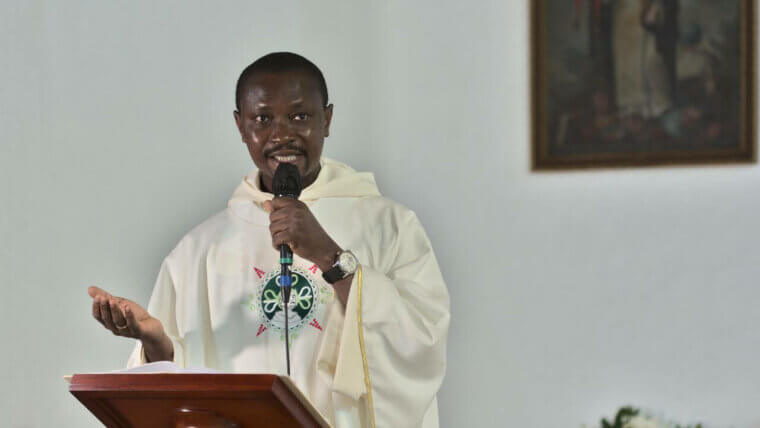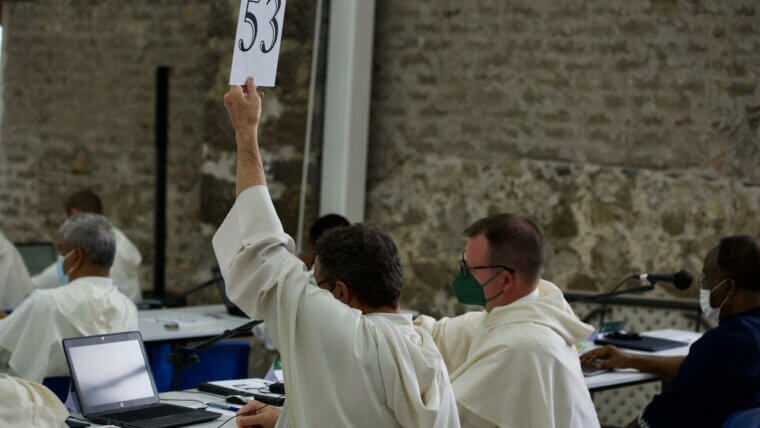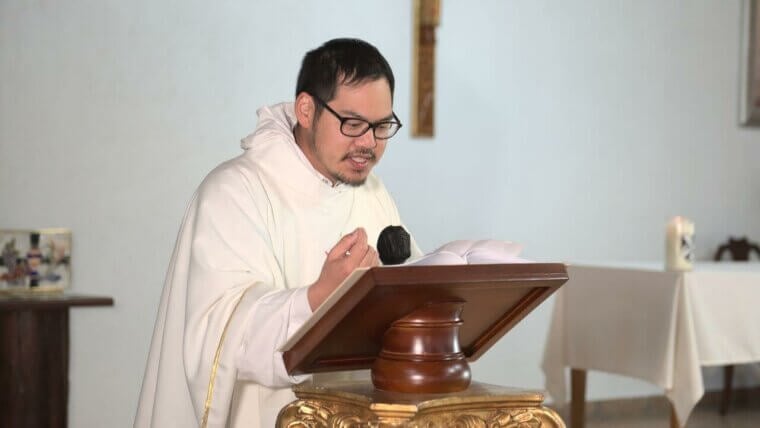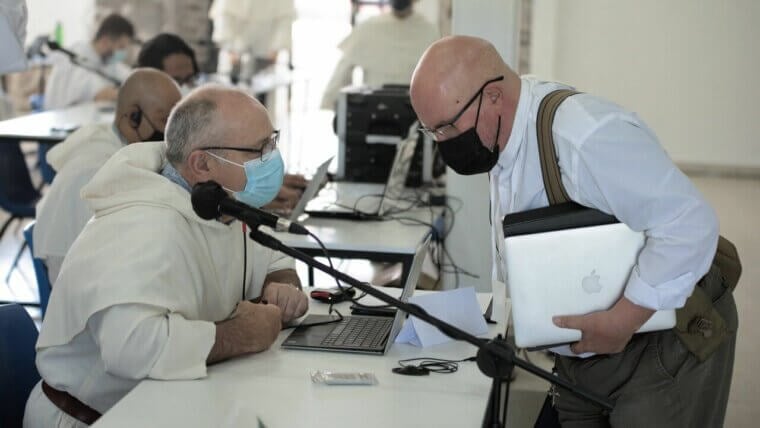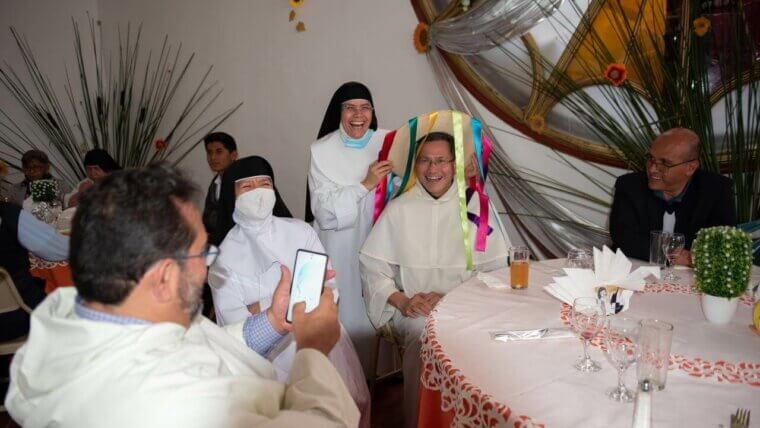Thursday 4 August 2022
Jer 31:31-34; Ps 51; Mt 16:13-23
The Gospel that today’s liturgy proposes for our meditation offers a turning point in the composition of Matthew’s Gospel. After the murder of John the Baptist, Jesus had left Galilee. He sought to avoid the large crowds so that he could devote himself entirely to his apostles, those to whom he would reveal the mystery of his passion.
My dear brothers and sisters, is there not a certain logic here between the death of John the Baptist and the unveiling of the mystery of Jesus’ passion when he decided to leave Galilee? The death of John the Baptist could be understood as a desire on the part of the powerful of this world to want to stifle the truth that disturbs them and to rightly deny the justice that has been proclaimed.
If, today, Jesus puts at the centre of his preaching this idea of the suffering Messiah, the one who will be humiliated in an ignominious death, it is precisely because there is a relationship between the couple truth/justice and the very identity of the Messiah. An identity linked to his mission of sending from the Father and of saving the people that we are.
To put it this way, Jesus wants to make sure that those who have chosen to follow him more closely are about to discover his true identity. People may be mistaken about him, but not the very people the Father has given him. They must know who he is and be led on the right path. He then asks his apostles the very personal question: “But who am I to you?” And it is Peter who gives the answer in the name of the twelve: “You are the Messiah, the Son of the living God,” he says. It is obvious that this answer of Peter’s was not fully understood by himself and the other apostles until after the resurrection of Christ.
My dear brothers and sisters, to designate Jesus as the Messiah, the Son of the Living God, is to recognise that he is full of grace and Truth, as the prologue of St John emphasises. So, he is the Sun of Righteousness, as St. Luke, the evangelist, designated him at his birth.
To designate Jesus, our Christ, as the Sun of Justice in our African sensibility is precisely to recognise that with the birth of this child, days of justice are dawning in our lives. Basically, it is the advent of justice that has come to our world. If the death of John the Baptist was an attempt to stifle truth and deny justice, the announcement of the passion of the Messiah will be the announcement of the full manifestation of God’s Truth and Justice.
For us, preachers of truth and justice in the 21st century, the figure of John the Baptist and the fate he suffered could remind us without a doubt of our vocation and the risk linked to this vocation which commits us. It is up to us to preach, by word and deed, the Gospel of truth and justice in a decaying world, a world increasingly hostile to truth. You know as well as I do that
we all have the heavy task of inventing, as our Father Dominic and his companions did in the past, many ways of preaching the salvation of God to all the women and men of our time. We have this duty, because we are committed to the house of our Father Dominic and to the following of Christ, to work to integrate the truth of God and his love in the deepest hearts of our contemporaries.
As the Lord himself says in the first reading, we must preach in such a way that Christ can, through us, inscribe the law of salvation in the hearts. And in this way the Lord will be our God and we will truly be his people. Through us and through our preaching, Christ must be able to build up his Church, not the church institution, but the building up of the body of Christ which is the people of God, the family of God. And then, when all kinds of threats are felt, we will not have to abandon him or have to answer the question, “Do you also want to leave?“
Like Peter, and in the face of threats, anguish and all sorts of doubts related to our vocation as preachers, there is reason to reaffirm our conviction, our unwavering attachment to Christ; “To whom shall we go? You have the words of eternal life”. (Jn 6:67).
My dear brothers and sisters, it is good to remember this again. Jesus is the builder of the Church, even though he said to Peter: “You are Peter, and on this rock I will build my Church“. The authority given to him is nothing more than that of service and no more. Together with the other apostles, they receive the keys to the Kingdom in order to open its doors to all.
Peter’s role will also be to be a symbol of unity in the Church. And would we, as Preachers, be an expression of this symbolism, of the unity of the Church? Could we, as servants, echo the Word of grace? For my part, I believe that we are always given the opportunity to find ourselves in relation to the source of our vocation as preachers in the Church and for the Church. Since this is so, may the Lord himself help us to do so for his greater glory and for the salvation of our world. Amen.
Br. Elvis Appia K, OP

